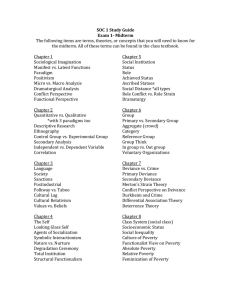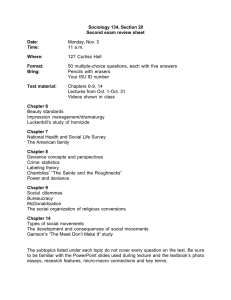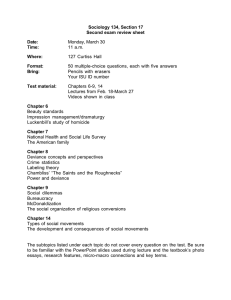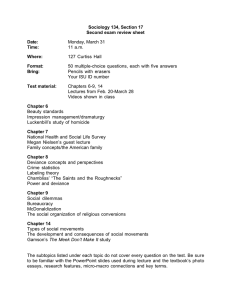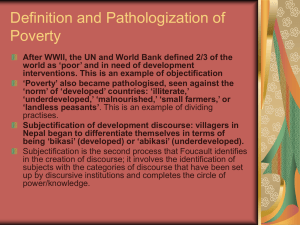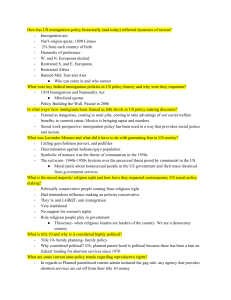Poverty as Deviance
advertisement
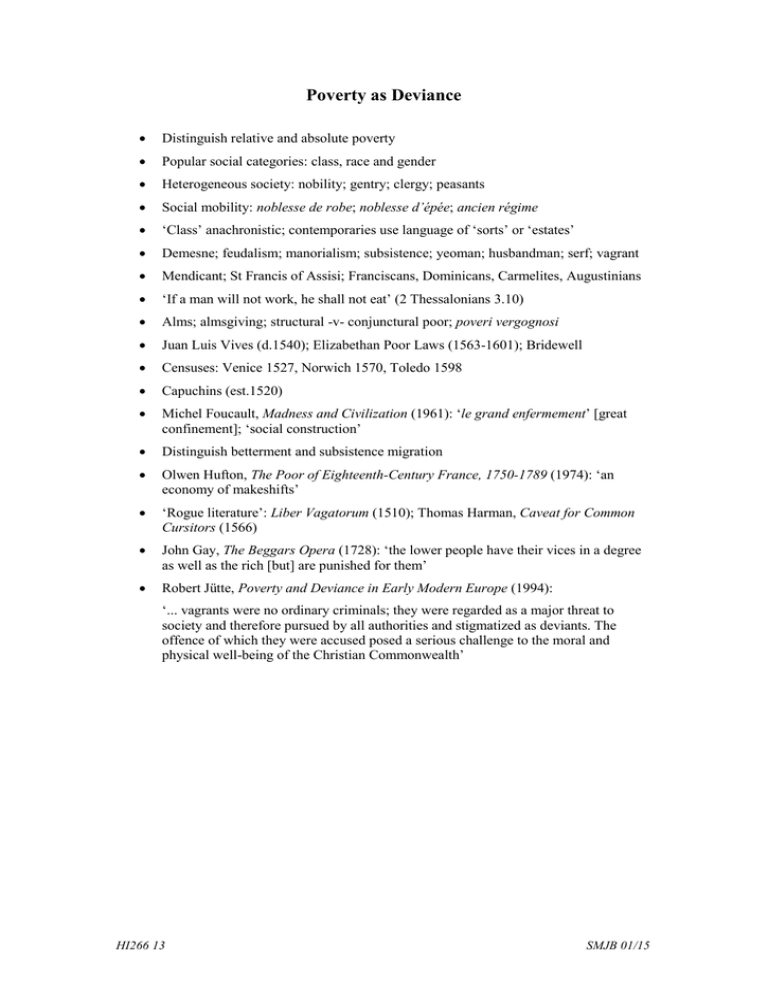
Poverty as Deviance Distinguish relative and absolute poverty Popular social categories: class, race and gender Heterogeneous society: nobility; gentry; clergy; peasants Social mobility: noblesse de robe; noblesse d’épée; ancien régime ‘Class’ anachronistic; contemporaries use language of ‘sorts’ or ‘estates’ Demesne; feudalism; manorialism; subsistence; yeoman; husbandman; serf; vagrant Mendicant; St Francis of Assisi; Franciscans, Dominicans, Carmelites, Augustinians ‘If a man will not work, he shall not eat’ (2 Thessalonians 3.10) Alms; almsgiving; structural -v- conjunctural poor; poveri vergognosi Juan Luis Vives (d.1540); Elizabethan Poor Laws (1563-1601); Bridewell Censuses: Venice 1527, Norwich 1570, Toledo 1598 Capuchins (est.1520) Michel Foucault, Madness and Civilization (1961): ‘le grand enfermement’ [great confinement]; ‘social construction’ Distinguish betterment and subsistence migration Olwen Hufton, The Poor of Eighteenth-Century France, 1750-1789 (1974): ‘an economy of makeshifts’ ‘Rogue literature’: Liber Vagatorum (1510); Thomas Harman, Caveat for Common Cursitors (1566) John Gay, The Beggars Opera (1728): ‘the lower people have their vices in a degree as well as the rich [but] are punished for them’ Robert Jütte, Poverty and Deviance in Early Modern Europe (1994): ‘... vagrants were no ordinary criminals; they were regarded as a major threat to society and therefore pursued by all authorities and stigmatized as deviants. The offence of which they were accused posed a serious challenge to the moral and physical well-being of the Christian Commonwealth’ HI266 13 SMJB 01/15
